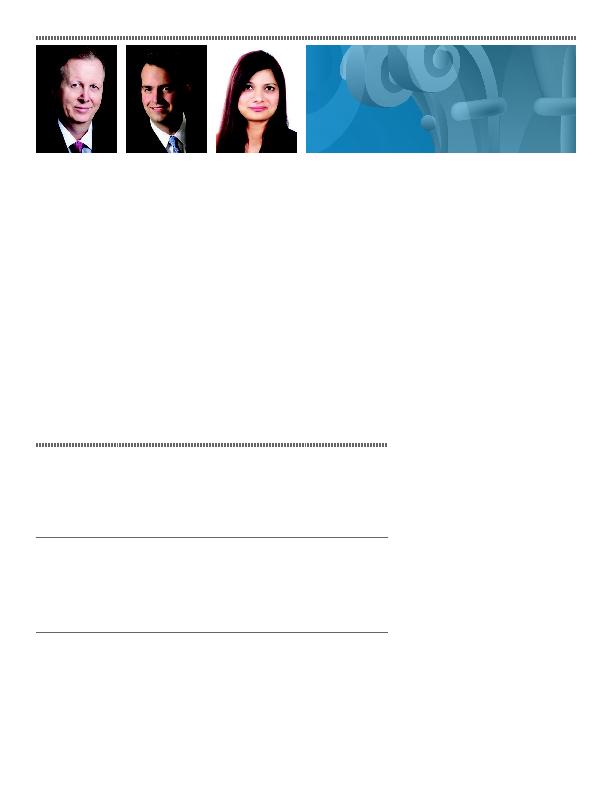
fraudulent schemes easier to perpetrate,
and have allowed criminal activity to
expand in both quantity and nature.
Today, corporate fraud is limited only by
the creativity of the perpetrator. The most
obvious effect of internal fraud is damage
to a company's financial bottom line.
Another significant impact is that the
the practical implications of which are
extremely destructive.
This article spells out the steps
that in-house counsel can undertake in
handling a case of internal fraud from
initial detection and internal investiga-
tion, to criminal and civil prosecution,
through implementation of better controls
and remedial safeguards.
internal fraud may be detected for
example, by monitoring high risk jobs,
receiving tips or complaints from some-
one, or conducting reviews and internal
audits. Regardless of how fraudulent
activities are detected, it is important
that the confidentiality of those reporting
suspected fraud is protected. Employees
who make whistleblowing reports regard-
ing suspected fraud should be protected
from victimization, harassment, discrimi-
nation and threats of disciplinary action.
In this regard, companies can establish
their own whistleblower policies and
procedures.
All allegations of fraud should be
recorded. This need not be a costly or
unnecessarily complicated procedure.
Depending on the size of the company
and the type of fraud, this might entail a
simple spreadsheet, a reporting database
or a full blown case management system.
that appropriate persons are assigned
to investigate an allegation of fraud.
Investigators must be objective and
not have an interest in the outcome of
Weeding Out the Enemy Within
concentrates on domestic and international commercial litigation and
arbitration. He is admitted to practice in Florida, the United States
District Courts for the Middle and Southern Districts of Florida, the
Eleventh Circuit Court of Appeals, and the Supreme Court of the
United States.
his practice in appellate litigation and trial support with an emphasis
on international civil and commercial disputes and white collar
criminal defense. He regularly appears before state and federal trial
and appellate courts on behalf of individual and corporate clients.
Miami Tower at International Place
100 S.E. Second Street, Suite 2600
Miami, Florida 33131
305.375.9220 Phone
305.375.8050 Fax
bhadaway@diazreus.com
www.diazreus.com
Miami Tower at International Place
100 S.E. Second Street, Suite 2600
Miami, Florida 33131
305.375.9220 Phone
305.375.8050 Fax
cgonzalez@diazreus.com
www.diazreus.com
Miami Tower at International Place
100 S.E. Second Street, Suite 2600
Miami, Florida 33131
305.375.9220 Phone
305.375.8050 Fax
asangar@diazreus.com
www.diazreus.com
commercial dispute resolution and arbitration matters. She specializes
in transactional matters including private equity investments, corporate
restructuring, mergers and acquisitions, major real estate development
projects, commercial dispute management and employment issues.
Arti is enrolled as a legal practitioner in Australia, India and Dubai
International Financial Center.